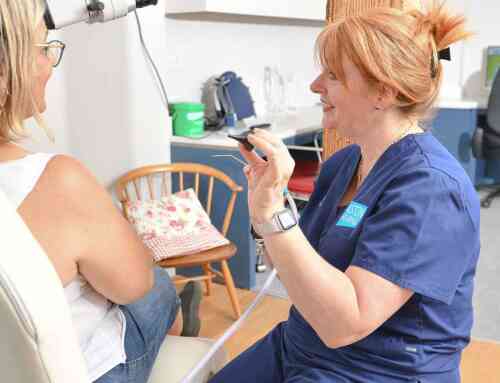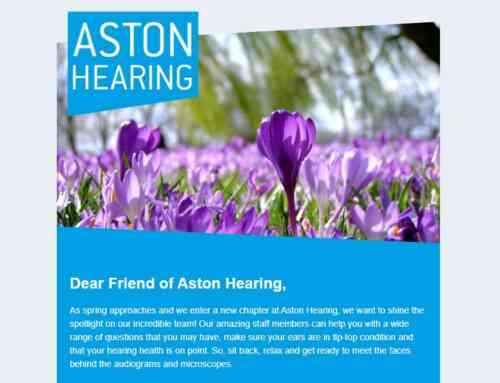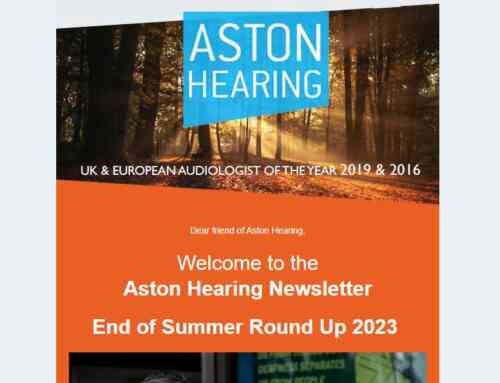What is Tinnitus?
Tinnitus is a common symptom of many hearing and ear conditions and is characterised by a ringing, hissing or other noises that appear to be originating in the body or head, rather than from an outside source. Tinnitus is actually therefore not a disease in itself, but usually a symptom of some other underlying condition or as a result of damage to the inner ear. It can be a cause of great distress and anxiety. At Aston Hearing we offer ways to manage tinnitus and are always looking for new approaches to help reduce its impact on daily life.
Is it in the ear or the brain?
With greater knowledge of neuroscience comes a new theory of where the tinnitus sounds are originated and research has helped scientists understand how the brain generates the sensation of sound.
Neurons , or nerve cells, are responsible for our internal communication and our brain is updated constantly with new information, even though we are unaware of much of it. Our brain constantly receives neural signals from our ears about what is happening in our environment and processes them into information.
When there is a hearing loss, these electrical signals from the ear diminish, but the brain is still on alert and waiting for the information. This is often when symptoms of tinnitus can appear. In its efforts to make sense of this situation, the brain may become increasingly alert to previously ignored electrical signals and these are perceived as new sounds.
We are aware that for many of our clients, tinnitus can be an even greater challenge than their hearing loss. One client, Nikki Magrath, experienced tinnitus during a period of total deafness and says “ it was by far the worst part of the whole experience. I expected total deafness to mean living in a silent world but the reality was far different. It was distressing to have all conversation and sounds replaced by a raging machine noise inside my head. I had to believe there was a way of tuning it out and regaining some peace.’
The human brain is amazing and it is now believed it can keep regenerating throughout life. New nerve pathways can be made and, with time and practice, the brain can be trained to habituate to the noises of tinnitus. This requires retraining our thought patterns to separate out meaningful stimuli from those which are not relevant.
What causes tinnitus?
There are many causes of tinnitus. The most common is damage to the inner ear- the cochlea. This can occur from exposure to noise, such as at a loud music event or from gunfire. Sometimes certain prescription drugs cause tinnitus as a side effect and if your ear is blocked with ear wax this can make you very aware of tinnitus. Changes in blood pressure can also cause tinnitus which means the tinnitus can be a useful ‘early warning sign’ of a more serious condition. Any sudden drop in hearing, often accompanied by tinnitus, should be assessed quickly as this could be due to Sudden Sensorineural Hearing Loss.
What help is available?
Since tinnitus is very closely related to emotional stress, it is often exacerbated when stress levels are high. Counselling can really help in this situation, especially when tinnitus is significantly impacting your mental health and well-being. Cognitive Behavioural Therapy (CBT) is fast becoming
a popular and effective treatment for some tinnitus as are relaxation or mindfulness techniques.
It is estimated that 80% of tinnitus cases are accompanied by some degree of hearing loss. Wearing hearing devices certainly seems to help our clients to manage their symptoms better. Hearing aids enhance the sounds you want to hear, such as voices and music, which can appear to lessen the noises associated with tinnitus. Hearing technology is advancing rapidly and many hearing aids now have specialised tinnitus programmes, create ambient sounds in quiet settings. This works as a distraction from the tinnitus and provides advanced sound therapy to help with rehabilitation.
Tinnitus is a complex issue and there is no miracle cure for the symptoms. The best approach is to offer a personalised support service . We provide a safe place to talk and share frustrations and offer advice and information to help manage tinnitus and its effects. Armed with an understanding of the condition and an individual plan of action, we can help to reduce the negative impact of tinnitus on daily life.
A problem shared often goes a long way towards a solution. We have our Hear Today coffee mornings to allow people to meet others and share experiences. With the right support and positive mindset it is possible to take control and manage tinnitus so you can enjoy life to the full.





